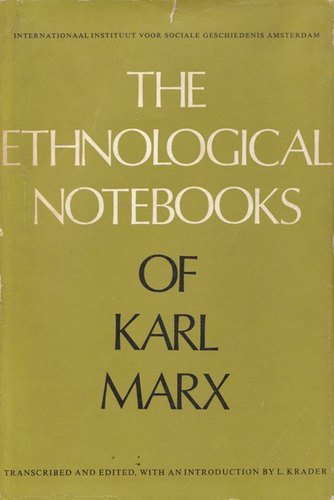
Marx copied out long passages of Morgan and others with his own substantial commentaries alongside. These were notes for a substantial work left unwritten and although their existence was known at his death in 1883, they were not published as one volume until 1972, 89 years later, and then only in a high priced specialist edition. These Ethnological Notebooks, as they became known were much less than a rough draft, "Rather it is a raw substance of a work, a private jumble of jottings intended for no other eyes than Marx’s own" Rosemont, p.201, italics in original.
Engels summarised these in The Origin of the Family, Private Property and the State, but missed out many of Marx’s most important insights. It was simply a popular digest of the work of Morgan and others. Sadly, Engels’ work has been taken for orthodoxy particularly in the traditional "Stalinized" version of Marxism. This is not to blame Engels, who himself describes it as "but a meagre substitute", for the much larger work that Marx left unwritten.
Marx saw aspects of these ancient societies as progressive and worthy of preservation during the socialist transition to Communism. He felt that they were in some ways superior to societies based on alienated labour and commodity production. Iroquois society, in particular, impressed him. Marx admired not just their democratic culture but also their whole way of life: egalitarianism, independence, reverence for life and personal dignity.
Marx praised Iroquois participatory democracy as expressed in their councils as a "democratic assembly where every adult male and female member had a voice upon all questions brought before it."

No hay comentarios:
Publicar un comentario